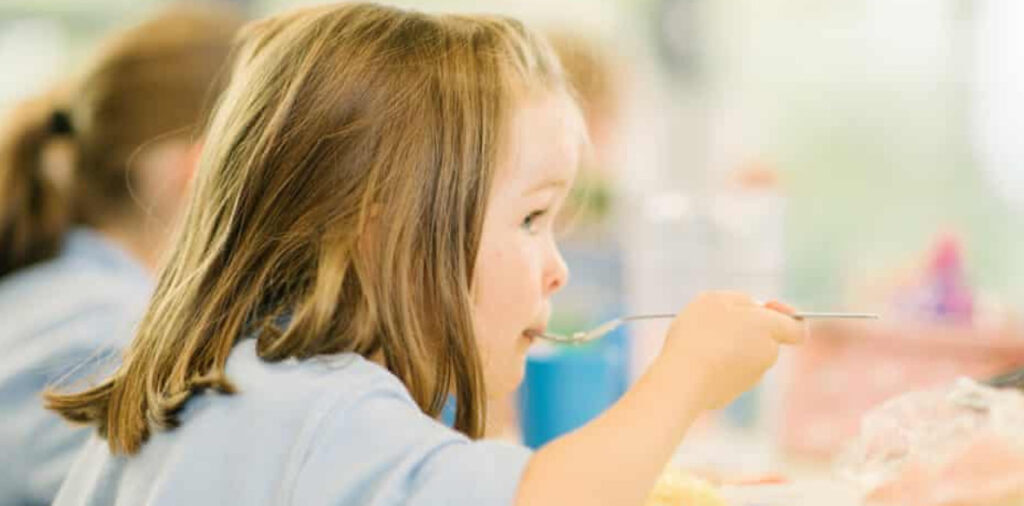Primary schools in England are facing fresh financial pressure as the government’s latest funding increase for universal infant free school meals (UIFSM) falls well short of rising food and wage costs. From September, funding per child will rise by just 3p—from £2.58 to £2.61—a move school leaders have condemned as inadequate and out of touch with economic realities.
The Department for Education (DfE) confirmed the 1.2% increase, which lags behind the current 3% annual rise in food prices and anticipated pay increases of 3% or more for school catering staff. As a result, schools will likely be forced to subsidise free meals from already overstretched budgets.
Education Leaders Criticise Funding Gap
Paul Whiteman, general secretary of the National Association of Head Teachers (NAHT), said the current rate still falls below the estimated £3.16 actual cost of providing a hot meal to pupils.
“This disappointing below-inflation increase will leave many schools absorbing the shortfall at the expense of other essential resources,” Whiteman warned. “School leaders are being forced to choose between meal quality and other areas of children’s education.”
Joseph Howes, chair of the End Child Poverty Coalition and CEO of children’s charity Buttle UK, added: “A 3p increase to cover the cost of meals—meals not even universally available to all children in poverty—is simply not good enough.”
Longstanding Policy, Shrinking Value
Universal infant free school meals were introduced in 2014 under the Conservative-Liberal Democrat coalition, starting at £2.30 per child. Since then, funding rises have failed to keep pace with inflation. In 2023, the Institute for Fiscal Studies (IFS) estimated that the real-terms value of UIFSM funding had dropped by 16%.
For a typical primary school with 90 eligible pupils, the new increase amounts to a mere £2.70 more per day—a sum headteachers say is nowhere near enough to keep up with costs.
Calls for Urgent Government Action
The Liberal Democrats have also criticised the funding rise, with Munira Wilson, the party’s education spokesperson, stating: “Labour are serving our children crumbs. This pitiful increase demonstrates a complete lack of priority for child welfare.”
A recent report by the Child Poverty Action Group (CPAG) acknowledged the scheme’s limitations but highlighted its significant benefits, especially for disadvantaged children. The group urged policymakers to maintain and expand UIFSM to help tackle child poverty.
The Department for Education has yet to respond to calls for a review of the funding model.


